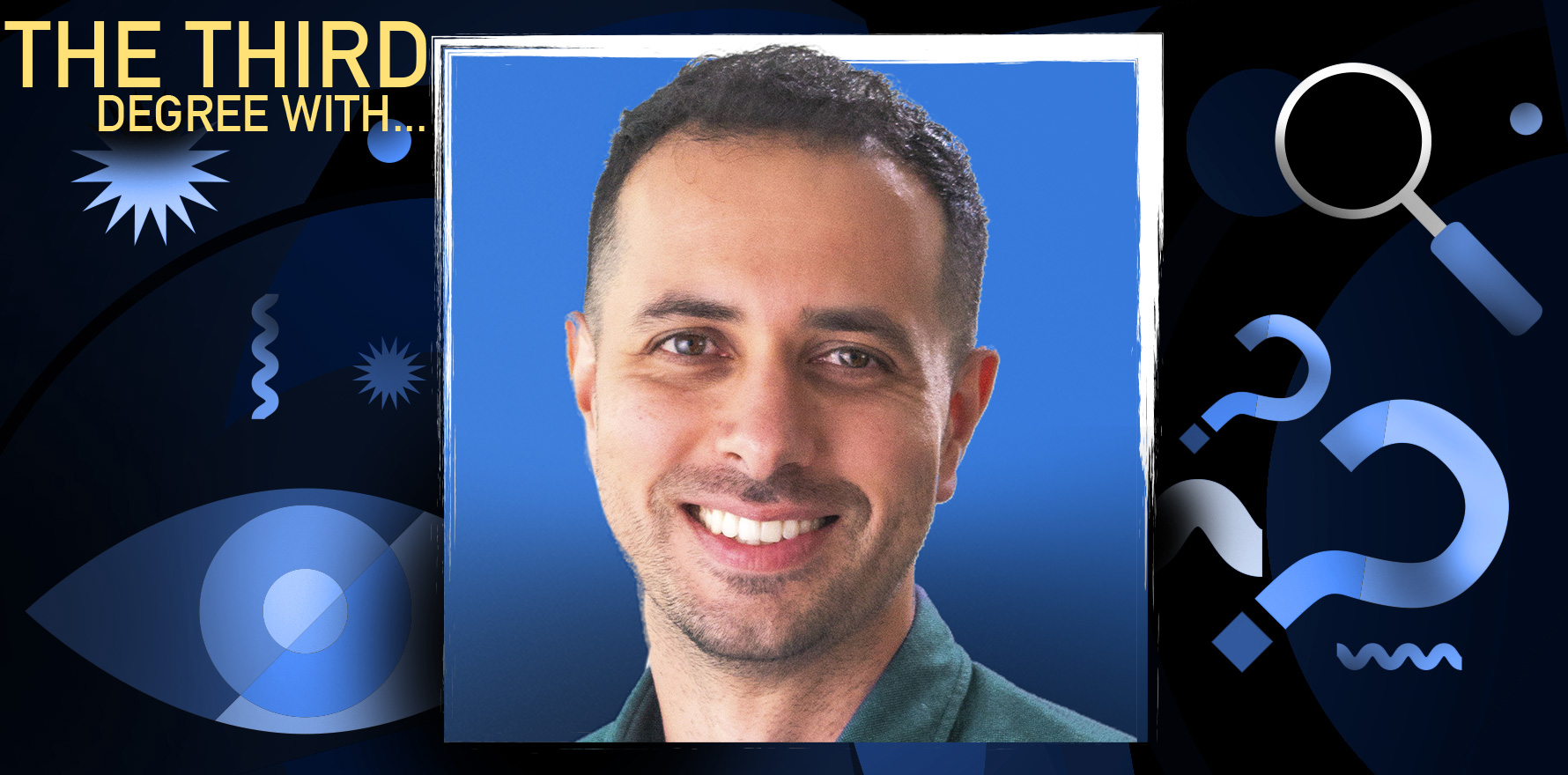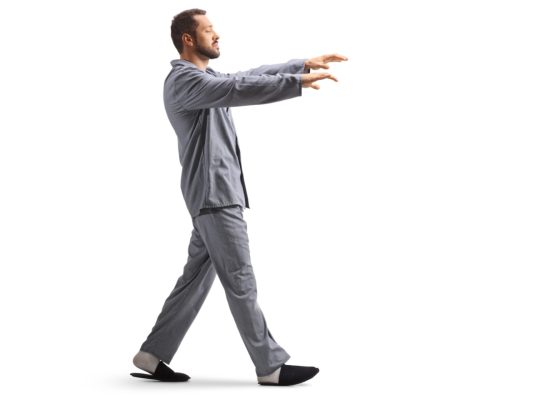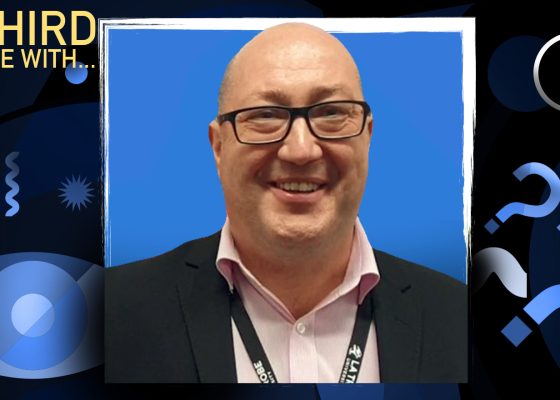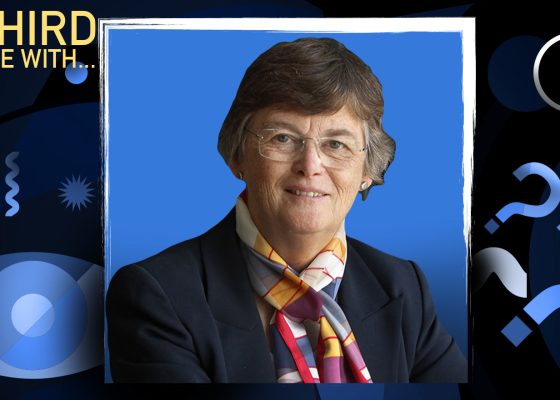A comment from his wife, it turns out. And being a bit of a nerd.
Dr Kieran Dang is a general practitioner, who is also a data scientist. He’s currently the chief medical officer at digital health platform Mosh and a co-founder of Virtual Dermatology.
He still sees patients, but he’s also found another way to amplify his capacity to help.
KIERAN DANG: “Obviously, I love helping people. You know, that sounds like a cliché, but yeah, that’s why we do what we do, right? But I had this sort of niggling feeling, like, could I be doing more? Could I be helping more than just one-on-one patients? Could I be doing something else?”
I wasn’t really sure what that was until one day, randomly, my wife mentioned that she’d met someone who used to be a lawyer and then went into this sort of new area of data science and AI. This was before all these large language models and AI models and things like that. And that sort of piqued my interest. I looked into it a bit and next day I enrolled for a masters degree in data science.
Next day?!
KD: Literally. It was – wow, I can see it. I can see what my path forward is.
And I’ve thought a lot about this – why am I not just happy doing general practice and why do I keep doing all these other things?
I’m definitely a nerd. I love learning and I’ve always been interesting in technology.
I think the thing that drives me is how can I make an impact at scale. That’s probably the best way for me to describe it.
How can I do that? And I think that’s what I’ve always been trying to achieve. How do I make the biggest impact to the most amount of people? And this seems to be an area that I seem to be good at, and I really enjoy, and that’s where I’m focusing.
So I learned about data science and AI and digital health and from there I tried a bunch of things.
After that I got my first job in a health tech start-up and it just snowballed from there.
I do get a lot of GPs and junior doctors asking me how to break into this field. There are groups out there that are trying to help, like the Creative Careers in Medicine, the Australasian Institute of Digital Health.
At the end of the day, if there’s one piece of advice I can give it’s just go out and do something. Just go do it. Get your hands dirty and get involved.
I think the more clinicians we can have in this space, the better the space will be because what I’ve seen is the companies that don’t have clinicians on board, or not enough clinicians, often tend to head in the wrong direction.
They tend to prioritise purely profits or product over everything else. And you need clinicians on board to bring things back and say, look, this is actually about the patient. What are we doing about helping the patient?
Do you still see patients?
I’ve kept my GP license, so I still do practise occasionally. I keep up my skills. And obviously, with my more current role, I use my GP skills a lot more. But for a while I was fully focused on digital health.
I started looking for jobs in the digital health space and I came across a company called Big Picture Medical in Sydney. They’re a health tech startup, building a next generation EHR [electronic health record], which includes AI and those sorts of things.
I took that job not really knowing what to expect, but yeah, as soon as I got it, I didn’t look back.
I co-founded a company with my wife and another friend, both dermatologists – Virtual Dermatology. It’s a dermatology clinic that’s just online. As you can imagine, dermatology is well suited to telehealth.
That’s going really well. It’s a six-month wait to see a dermatologist, even in the cities. If you’re in a rural area, you’ve got no chance. So being able to provide that service is really amazing.
Now I’ve moved more towards, okay, how do we take these systems and put them into action and actually deliver these new services? How do you actually deliver good telehealth care? How do you use these AI systems or EHRs and all that sort of stuff to deliver for the patient, the practitioners and the admin staff that are all involved?
Do you have any patient face-to-face time in your current role as CMO at Mosh?
My primary role at Mosh is ensuring that we have the right clinical governance systems in place – making sure that everything we do is safe, it’s effective, it’s good quality care for the patients, and making sure we have the systems to do that.
As part of that, one of the things that I do is have some contact with patients.
I do consultations through the Mosh platform with patients, an hour or so every week at least, just to keep up my skills and so that I know what’s going on with the platform.
How does it work? Where are the pain points? Where are the issues? That’s really important to stay in touch with.
Do you get the same satisfaction from a digital consultation as you do face-to-face?
It’s a different style of work, which I really find enjoyable. But I suppose it isn’t for everyone. With the face-to-face GP consults it’s very personal and intense. It’s a very different type of stress as well. When you’re working in these digital health companies, it’s a bit more nebulous. It’s a different type of work and the problems take weeks or months to solve.
As an example, at Mosh we’ve recently launched a weight-loss module, a dietitian module, where we don’t just prescribe medication, but we help patients with meal plans and dietitian support and all those sorts of things to help them lose weight.
It takes months to work on the plans, you know, come up with the ideas, come up with the designs, and then actually build the solution, test it, launch it, get feedback.
So instead of doing that one-on-one, you’ve created this solution that can help 10,000 patients talk to a dietitian or get these meal plans or track their calories or whatever it is. That helps people at scale.
I think that’s where I see the future of medicine going as well.
We don’t want to replace GPs. We’re definitely not trying to do that. We’re an additional service that complements GPs.
So for example, they have a patient who needs to lose weight, and they’ve done health coaching and things like that. But rather than try and take all of that on themselves and coordinate it and make sure they see a dietitian etc, they can link them in with a service like Mosh, where we take over that part of their care.
I see in the future, this is probably going to be a more common model of care, because realistically, for GPs, there’s just too much for us to know.
There’s too much for us to do that’s getting harder and more complex.
Related
What’s your feeling about how we’re moving through the digital health space?
I look at it from two points of view.
One is the government and are they going to provide the right funding and training and resources to enable these new models of care.
They’ve been probably a bit slower on the uptake, as is probably expected. I have a feeling that things are starting to head in the right direction. For example, they’re starting to launch virtual care clinics.
I think the other side of it is private industry, which I feel drives a lot of the innovation.
There’s a lot of hype in this space as well – you know, AI is going to change how we do things, etc, etc.
But from my point of view as a clinician, I always take it back to how does this help the end goal, which is delivering good care to a patient.
Does all this technology actually help me do my job?
And I think we’re starting to reach a sort of convergence where a number of different developments and improvements, for example in AI scribes and cloud-based EHRs and a little bit more interoperability, are starting to make some of these newer models of care better and more interesting and more efficacious and meeting that goal of helping the patient.
How realistic are our fears about AI in healthcare?
I think those fears are partially founded and partially unfounded.
There are a lot of operators out there. It feels like every day a new company launches an AI scribe.
In terms of the privacy and security, I actually think there are a few companies out there that are doing a pretty good job of that. They’ve got good systems in place to make sure that the data is de-identified. It’s on secure servers. It’s not going to get sent to Google for extra training and things like that.
So, I think those are problems that are solvable and solved by certain companies.
SA Health has banned the use of AI scribes in its public hospitals. Thoughts?
Yeah, I don’t think that’s the right approach either. I think the approach should be more: Okay, these tools are here and they do help.
Obviously, it’s not a magic bullet where you don’t have to ever check your notes.
As a GP, imagine I had a first-year resident sitting in my room taking notes for me and they type it all up on the computer. But I still have to check it because, you know, this is my patient and this is a first-year resident, so I’m going to check their work and just make sure it’s correct. That’s how I think of it.
So as long as you’re checking your work, it’s completely fine. It’s safe. You’re not going to run into trouble.
Maybe it does hallucinate and make something up. So do first-year interns. I did the same. I made mistakes. I’d mishear something.
As long as you’re checking, AI scribes are really, really useful.
It really does let you shift your focus back to the patient, and you can actually have active listening with the patient rather than focusing on what you’re going to type.
I still remember my first day of GP registrar training. My supervisor told me, Kieran, the most important skill you can learn is being able to type on a computer while maintaining eye contact with the patient. And I was like, oh my god, okay.
And to be honest, I could never really do that. By taking that load off, I think it really helps doctors re-engage with patients and focus on their problems.
How close are we to interoperability?
I think we’re a long way away, to be honest.
And I don’t know if this is a controversial take, but I think that the only way we’d ever really reach proper interoperability is through some sort of government mandate.
Now obviously that has its own issues, but I really don’t see any other way. And to be honest, the main reason is because vendors, like EHR vendors, are kind of disincentivised to have interoperability.
They’ll say, we’re worried about integrity of the data, blah, blah, blah. They’ll use a bunch of excuses, security.
But I think at the end of the day, to be honest, most of them want to limit interoperability, or have very tight control of interoperability for financial reasons.
Some companies have decided, hey, an open ecosystem is how we’re going to grow and expand. And I really like that approach from a business point of view, and I think that is better for the health ecosystem.
But other companies are taking quite a closed approach and have decided, look, we’re not going to have APIs (application programming interface) that people can integrate with. We’re not going to adopt these standards. We’re going to have a closed ecosystem. And you know what? We’re going to do it all ourselves.
For example, AI scribes, the way they can be really useful is if they are integrated into an EHR. I spent a couple of months working at Heidi in an integrations role, and I found it incredibly difficult to engage with EHRs, because most of them wanted to just close things off and said no, we’re going to do it ourselves because we’ll make more money that way, essentially. Hey, we’ve got our AI scribe. Don’t worry about using all these other ones like Heidi or Meta or whatever. Buy the whole package. We’re the best. It’s another $100 a month.
In order to integrate with a system, these companies often have to share some of their revenue with that EHR.
So again, it all becomes a financial sort of battle. I hear companies talk about, yeah, we support FHIR (Fast Healthcare Interoperability Resources). We’re all about adopting these standards. But when it comes down to it, they really don’t want to adopt these standards at all.
What about My Health Record? Can that bring it all together?
It’s got a lot of potential, absolutely.
As My Health Record develops and improves, you have some sort of mandate that you have to share information with My Health Record, and then another system can come in and pull that information, potentially.
Obviously, My Health Record is going to have to become a lot more mature to reach that point. But I’m hoping that it does happen.
Patients a lot of the time don’t want their records uploaded. There’s still a little bit of hesitancy. Sometimes I find that people either don’t know about it at all or they don’t care.
They fall into three camps.
Either they have no idea what you’re talking about. Or they know a little bit about it, and they’re like, no, I’ve opted out of that. And the other camp is they know about it and they have wildly unrealistic expectations of what it actually does.
They’ll say, oh, I saw my GP in Canberra. I’m seeing you in Sydney. Don’t you have my record already?
It’s a bit unrealistic. But, you know, I guess that’s a good sort of goal to aim for. This is what patients are starting to expect: if you’ve got a My Health Record, I want it to be a full My Health Record, you should be able to share my data with the right access controls and all that sort of stuff as a given.
If the government committed funding and you got the right team in place, with the right direction and vision, you could probably achieve it in five years. I think that would be a great goal to have.
My gut feeling is that’s probably not going to happen. It’s going to take 10 years or so.




